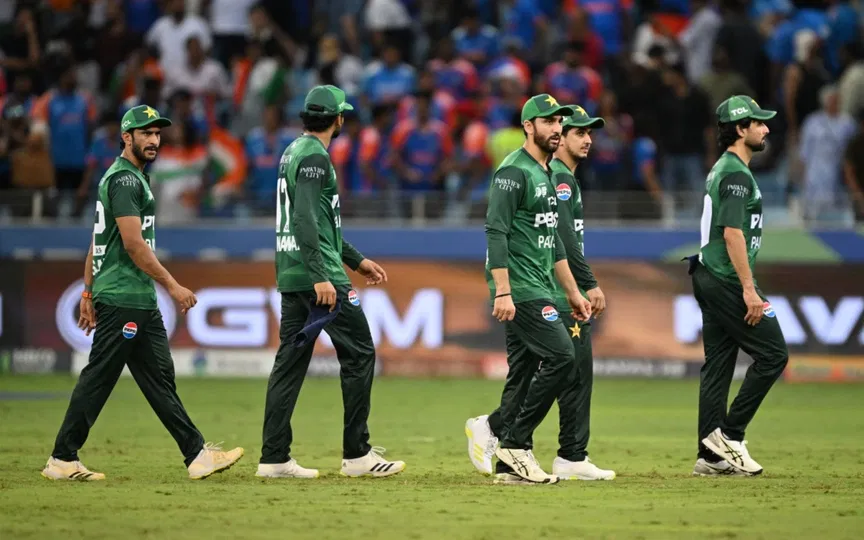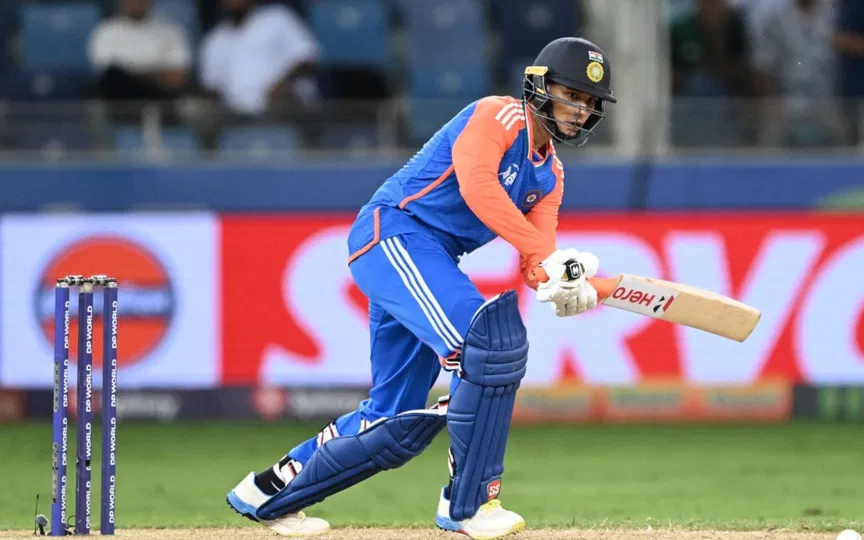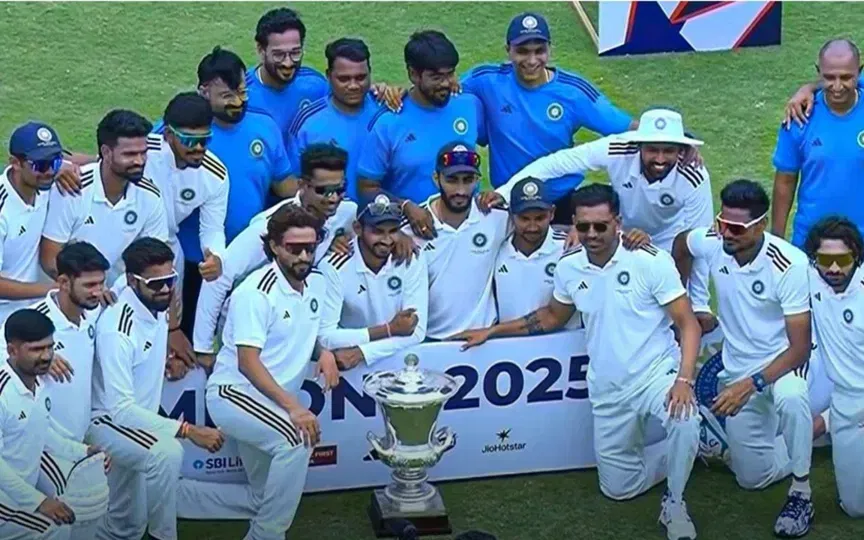![India-Pakistan's 'no handshake' fiasco explained [Source: @Shrey__123/X.com]](https://onecricketnews.akamaized.net/parth-editor/oc-dashboard/news-images-prod/1757921428277_India_Pakistan_Asia_Cup_2025.jpg?type=hq) India-Pakistan's 'no handshake' fiasco explained [Source: @Shrey__123/X.com]
India-Pakistan's 'no handshake' fiasco explained [Source: @Shrey__123/X.com]
In the midst of a huge uproar and strong pushback, Team India played Pakistan in the Asia Cup 2025 on September 14. Apart from the men in green’s humiliating defeat, the lack of customary gestures post-match grabbed the most limelight, giving rise to a new controversy.
Timeline Of Cold 'No Handshake' Fiasco
This controversy boiled over after India, led by captain Suryakumar Yadav, walked straight back to the dressing room after wrapping up the 128-run chase in 15.5 overs.
No words, no handshakes, no eye contact – the Indian team were absolutely cold to their Pakistan counterparts. While the Salman Agha-led side queued up for the customary post-match handshake transition, the men in blue shut the dressing room door in their faces and refused to come out to greet them.
Once the video went viral, Pakistan players, coaches and media had a massive meltdown. Head coach Mike Hesson deemed India’s action as 'disappointing,' while former cricketer Shoaib Akhtar accused Suryakumar Yadav of mixing politics with cricket.
Team India were largely called out for their ‘unsportsmanlike’ behaviour by Pakistan fans, while the home fans rejoiced at the cold shoulder.
India Just Drew A New Battle Line With Pakistan, And Rightly So
The India-Pakistan geopolitical equation hasn’t been stable since the 1947 partition. Though cricket and other sporting events have often stayed immune from this strained relationship, the Indian team’s body language on September 14 in Dubai told a story in itself.
After the Pahalgam terrorist attack and severe military conflict, India unanimously adopted a zero-tolerance policy against Pakistan. From cutting political ties to withdrawing treaties, the government left no stone unturned in paralysing the Pakistan government.
Against this backdrop, the Asia Cup became one of the rare occasions where the two nations were compelled to share a sporting platform due to international cricketing commitments.
While the BCCI could not withdraw from the Asia Cup due to international guidelines, the players’ refusal to acknowledge Pakistan symbolised a broader sentiment that patriotism is above sportsmanship. A line had to be drawn not just for the sake of public sentiment but also to protect the sovereignty and pride of the country.
And the Indian team did just that. The absence of the handshake was not merely a spontaneous act of hostility but a deliberate symbol of resistance. For many Indians, it was seen as a reminder of solidarity with the armed forces and a tribute to the victims of terrorism.
Refusing to acknowledge Pakistan and its players throughout the game was yet another tight slap required to set the record straight that, despite being helpless through international laws, India will not compromise on its pride.
India, from now on, will have no relation with Pakistan on or off the field. As Suryakumar Yadav said in the post-match press conference, some things are above sportsmanship.
Patriotism is greater than sportsmanship, and any entity that works against our motherland will be treated with utmost hostility, irrespective of what the global opinion or geopolitical pressure might be.
India Did Set The Right Precedent
Team India, under Suryakumar and Gautam Gambhir's leadership, has set the right precedent with their ‘no handshake’ gesture in the Asia Cup. While international governing bodies like the ICC may push for sporting neutrality, the stance taken by the Indian team reflects the mood of the nation.
Public sentiment strongly supports the idea of disengagement, and cricket has simply mirrored this larger reality.
For Pakistan, it was a humiliation on and off the field, compounding their defeat. If they cared so much about the 'sportsmanship', their own players like Abrar Ahmed and Faheem Ashraf should have refrained from sharing derogatory posts on India during 'Operation Sindoor'.
India’s campaign to isolate Pakistan on all fronts has finally reached the cricket field, and it would be no surprise if this is the new normal going forward.
To Suryakumar Yadav and Team India, you boys did the right thing. Taking a stand for your own country is every citizen’s primary duty, and to do that on a global stage, you need courage.
In the end, India sent out a message loud and clear—on some occasions, cricket is not just about bat and ball but about representing the soul of the nation.
.jpg)



.jpg?type=mq)

